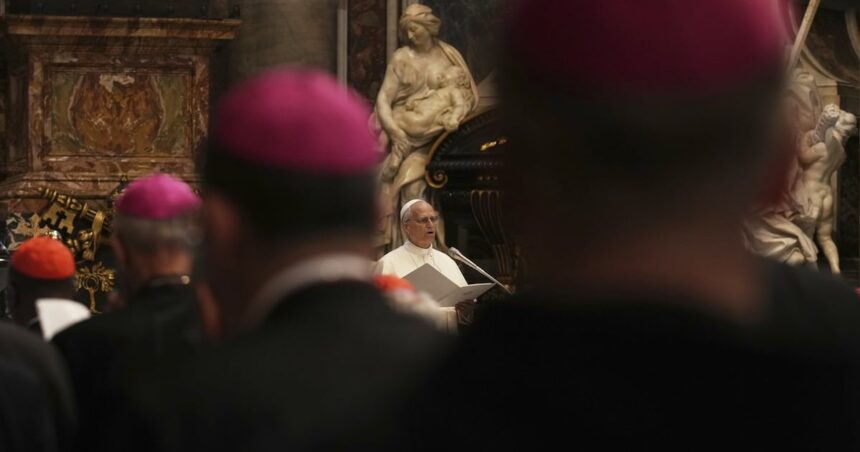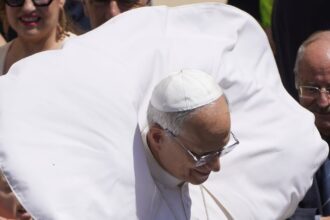In a watershed moment for the Catholic Church, Pope Leo XIV has forcefully reaffirmed the millennium-old tradition of priestly celibacy while simultaneously calling for unprecedented measures to combat clerical sexual abuse—signaling a papacy determined to balance doctrinal continuity with institutional reform.
Speaking from the Vatican’s Apostolic Palace yesterday, the pontiff addressed mounting pressure from progressive Catholic factions who have advocated for optional celibacy as a potential solution to priest shortages in various regions. “The sacred commitment to celibacy remains an essential charism of the priesthood, a complete gift of self that mirrors Christ’s own sacrifice,” the Pope declared to an assembly of cardinals and bishops.
The statement comes at a pivotal moment when several bishops’ conferences, particularly in Germany and parts of Latin America, have openly questioned whether maintaining mandatory celibacy serves the modern church’s needs. Church attendance in traditionally Catholic countries has declined steadily over the past decade, with seminary enrollments following a similar downward trajectory.
Vatican analyst Teresa Bernadetti notes that “Pope Leo is walking a tightrope between preserving traditional Catholic identity and acknowledging the institutional failures that have eroded public trust. His position on celibacy will disappoint reformists, but his stance on abuse accountability represents a significant shift.”
Indeed, the Pope’s unwavering position on celibacy was counterbalanced by his most forceful statements yet on clerical abuse. “There can be no mercy without justice, no forgiveness without accountability,” he stated, unveiling a comprehensive framework requiring dioceses worldwide to implement standardized reporting protocols and cooperate fully with civil authorities in abuse investigations.
The new directives mandate that all credible allegations must be reported to local law enforcement within 48 hours, effectively eliminating the internal church investigations that critics have long viewed as institutional cover-ups. Additionally, the Vatican will establish an independent review board composed primarily of lay experts to evaluate bishops’ handling of abuse cases—a direct response to the criticism that the church has historically protected its leadership.
“For too long, the voices of victims were silenced by our own institutional arrogance,” the Pope acknowledged. “This ends today.”
Financial analysts estimate the Church has paid over $4 billion in settlements to abuse victims in North America alone since 2002, with additional billions spent globally. The new protocols aim to address both the moral and financial toll the crisis has taken on the institution.
Survivors’ advocacy groups have cautiously welcomed the abuse directives while expressing disappointment in the Pope’s position on celibacy. James Donovan of the International Survivors Network told CO24 World News that “the accountability measures represent real progress if fully implemented, but the refusal to reconsider celibacy suggests the Church still hasn’t fully grasped how its own structures may contribute to abuse dynamics.”
Canadian Catholic leaders have responded with mixed reactions. Cardinal Thomas O’Leary of Toronto described the Pope’s dual approach as “a necessary balance between preserving our sacred traditions and confronting our institutional failings with courage and transparency.” Meanwhile, Bishop Marie-Claude Fournier of Quebec expressed concern that “maintaining rigid celibacy requirements without addressing underlying issues of clerical culture may perpetuate existing problems.”
Theological experts suggest the Pope’s position reflects a broader conservative shift within the Church’s hierarchy. Dr. Elizabeth Anderson, professor of Catholic studies at Toronto University, told CO24 Politics that “Pope Leo is clearly signaling that doctrinal change is not on the table, but institutional reform and accountability are non-negotiable priorities.”
As parishes across Canada prepare to implement the new abuse protocols, the fundamental question remains: can the Catholic Church maintain its traditional teachings while effectively reforming the institutional culture that allowed abuse to flourish in silence for generations?










